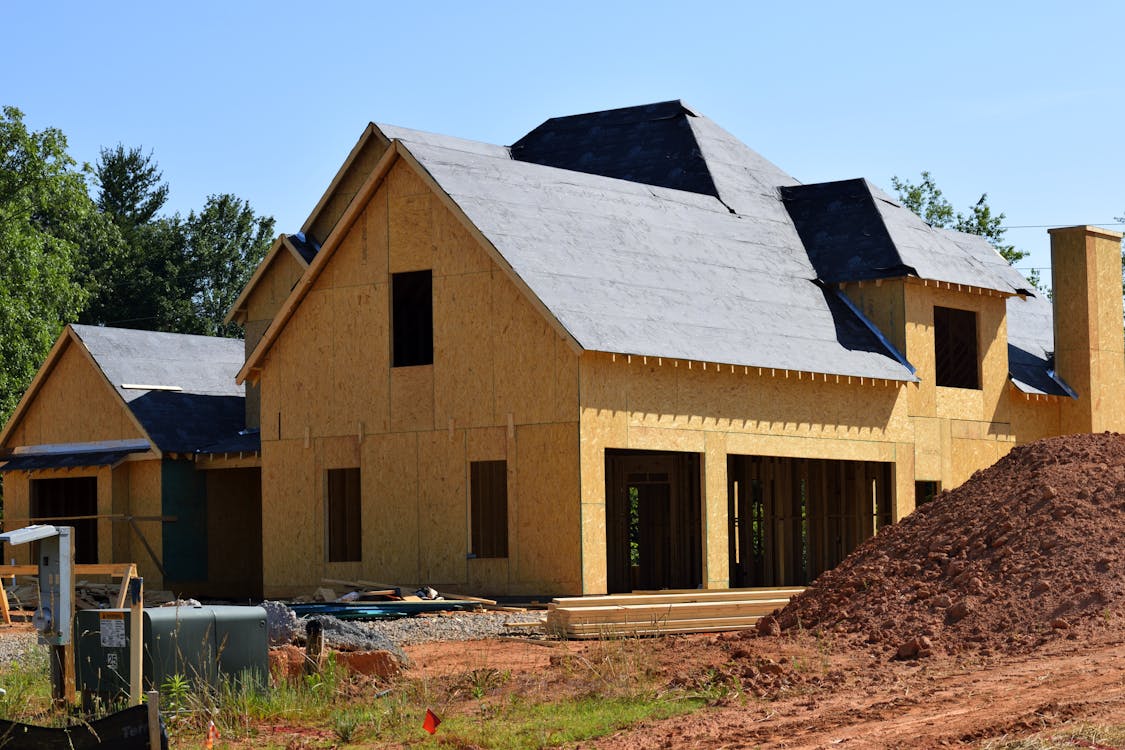A new construction project can be thrilling for investors. However, it also comes with its fair share of challenges and complexities. Each step is crucial for success, from laying the groundwork in the initial planning stages to overseeing construction management and securing new construction loans.
This post will explore the essential aspects of new construction projects, providing insights for investors looking to capitalize on these opportunities.
Site Selection
Site selection is pivotal as it determines the foundation for the entire project. Conducting thorough feasibility studies helps assess the viability of the chosen site, considering factors like environmental impact, zoning regulations, and accessibility.
Budgeting is another essential aspect that dictates the project’s financial feasibility. Clear project objectives must be established early on, outlining the desired outcomes and scope of work.
Initial Planning and Design
Every successful construction project starts with a solid plan. During the initial planning phase, investors must define their objectives, assess market demand, and conduct feasibility studies. Understanding the target demographic and local regulations is essential for selecting the right location and conceptualizing the design.
Collaborating with architects and engineers, investors translate their vision into blueprints and construction plans, ensuring that the design meets functional and aesthetic requirements.
Financing and Funding
Securing adequate financing is essential for bringing a construction project to fruition. Investors have various funding options, including bank loans, hard money construction loans, or government grants. Developing a comprehensive financial plan covering construction costs, permits, land acquisition, and contingency funds.
Bank Loans
Bank loans are a traditional financing option for construction projects. They offer relatively low-interest rates and flexible repayment terms, making them attractive to investors. Banks may require collateral and a solid credit history to qualify for a loan.
Additionally, the application process can be lengthy, requiring thorough documentation and financial scrutiny. However, bank loans provide a reliable funding source for projects with strong financial projections and a proven track record.
Private Investors
Private investors or hard money lenders can provide capital for construction projects in exchange for equity or a share of profits. Unlike bank loans, local private money lenders may be more willing to take on higher risks and provide funding for innovative or high-growth projects.
However, investors should carefully consider the terms and conditions of the investment, including potential dilution of ownership and exit strategies.
Crowdfunding
Crowdfunding platforms allow investors to raise capital from many individual investors or backers. This decentralized approach to funding enables investors to access capital quickly and efficiently, bypassing traditional financing channels.
Crowdfunding campaigns can generate buzz around the project and attract interest from potential buyers or tenants. However, investors should carefully assess the platform’s fees, regulations, and investor protection measures before launching a crowdfunding campaign.
Resource Procurement
In the procurement phase of a new construction project, attention to detail is paramount to ensure smooth progress. Procuring materials involves identifying the required supplies, sourcing them from reliable vendors, and ensuring timely delivery to the construction site.
Similarly, hiring contractors involves careful selection based on their expertise, reputation, and adherence to project requirements.

Resource Management
Quality control is essential throughout the procurement process to ensure that materials meet the necessary standards and specifications, thus guaranteeing the integrity and longevity of the final structure.
Efficient resource management is also crucial to optimize the use of materials, equipment, and labor, minimizing waste and maximizing efficiency. By prioritizing quality control and resource management in the procurement phase, construction projects can mitigate risks, stay within budget, and maintain the highest standards of craftsmanship.
This ensures that the project progresses smoothly from procurement to completion, ultimately leading to a successful outcome that meets or exceeds stakeholders’ expectations.
Construction Management
Effective construction management is vital for keeping the project on schedule and within budget. Hiring a reputable construction manager or general contractor is essential for overseeing day-to-day operations, coordinating subcontractors, and managing resources.
Regular progress meetings and site inspections help promptly identify and address any issues or delays. Clear communication and transparency among all stakeholders are essential for maintaining project momentum and ensuring quality control.
Risk Management and Compliance
Construction projects involve risks ranging from overrunning your new construction loan budget to safety hazards and regulatory compliance issues. Investors must proactively identify and mitigate risks through comprehensive risk management strategies.
This includes obtaining necessary permits and approvals, adhering to safety protocols, and addressing environmental or legal concerns. Compliance with local building codes, zoning ordinances, and industry standards is critical for avoiding costly delays and penalties.
Marketing and Sales
As the construction nears completion, investors shift their focus to marketing and sales efforts. Creating a compelling brand identity and marketing strategy helps generate interest and attract potential buyers or tenants.
Leveraging digital marketing channels, such as social media and online listings, can expand the project’s reach and visibility. Hosting open houses and showcasing the property’s unique features and amenities help drive sales and increase market appeal.
Property Development and Management
Once construction is complete and units are sold or leased, the focus shifts to property development and management. Investors must ensure that the property is well-maintained, amenities are functioning correctly, and residents or tenants are satisfied.
Implementing effective property management practices, such as rent collection, maintenance, and tenant relations, is crucial for maximizing returns on investment. Regular property inspections and proactive maintenance help preserve the asset’s value and enhance long-term profitability.
New construction projects present exciting opportunities for investors to capitalize on the growing demand for residential, commercial, and mixed-use developments. With careful planning, diligent execution, and strategic decision-making, new construction projects can yield profitable outcomes and contribute to long-term wealth generation.
Let Insula Capital Group help you finesse your new construction projects. As private hard money lenders, we’ll help you secure your new construction hard money loans and navigate the complexities of construction projects. Contact us today to explore your financing options and confidently build your future success.




